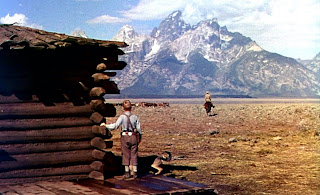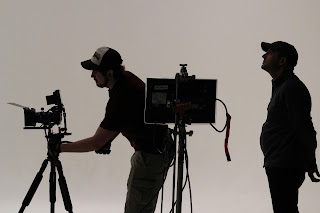Last year at this time I got a new agent – Michael Zanuck – and booked the first audition he arranged. Forty lines in an episode of the CBS daytime drama The Young & The Restless, playing marriage counselor Dr. Iris Carson. The people at CBS were terrific. So well organized and so considerate to actors coming in for guest spots. I got good comments from production. It was a positive experience all around. I thought things were suddenly taking off, but not yet.
I was called back for the role of the older I Love Lucy comedy writer Madelyn Pugh for Aaron Sorkin’s film Being the Ricardos, for Amazon Studios. It went to Linda Lavin. No shame there. She’s a wonderful actress. But what a disappointment. I loved the script and role.
I also got a second look for the team owner in Amazon’s TV series of A League of Their Own, but that went to Rosie O’Donnell when she became available and they decided to take the role in a different direction.
Well, such is the business of acting.
But then the virus hit with lock downs and crazy rules. I have always believed that life happens as it does for a reason, and that if you just hang on you will come to realize that everything turned out fine in the end. So, not to be deterred, I've started thinking about what practical things I’ve learned in the past decade as an actor and how they can help going forward from here.
The list, in no particular order, except the most important last.
1. Learn from those who are successful in the career path you’ve chosen, or in a career that’s an important adjunct, like casting. If you’re going to take a drama class from an actor (or an actor turned teacher), then before you plunk down hundreds/thousands of dollars, check his/her credits at the Internet Movie Database. How many credits do they have? Are they in productions you recognize? Is the actor still performing?
If their experience is spotty, you might consider online learning at Masterclass.com, leaning toward older British actors. The Brits have a practical, workmanlike approach. They're not "stars" they're Actors, and they’re good at it. I learned to assess a script and much more from Dame Helen Mirren by taking her class online. Her advice was how I knew that the Being the Ricardos role was a good one.
2. If you take a workshop, don’t pay extra to perform in a scene. Here’s why: The chance that you will so wow the person leading the workshop that they’ll cast you in a role in their next production is infinitesimally small. Worse, you’ll be so caught up in learning lines that you won’t have time to take notes. The most valuable and practical television audition advice I heard in a workshop cost me all of $30. It was given by casting director Geoffrey Soffer (Ugly Betty, The Beautiful Life) and I learned a ton. If you hope to wow casting directors with your acting skills do theatre and invite them to a performance. Danny Aiello, who played a lot of heavies, got his comedy turn in Moonstruck because director Norman Jewison saw him in a Broadway play.
3. Try new things in front of an audience and listen to their reaction. In Los Angeles, I discovered actor get-togethers where actors were paired off, scenes were handed out, you had 15 minutes to rehearse and then you did the scene. It was a low-risk opportunity to try different approaches and roles and to get feedback from relatively average people (The kind that buy movie tickets.) The cost of such gatherings was typically a small donation, and you could attend once or twice a month. It was a good exercise.
4. Avoid magical thinking. In New York and Hollywood there is an entire industry that preys on the dreams of aspiring actors, so if an online or in-person class promises to provide “the secret” to getting cast or becoming a “star” don’t waste your money. Similarly, do not assume a producer/director/casting director will see your face, think “He/She is it!” and pluck you out of obscurity with no experience. I see this too often with background performers who so strive to get their face in the same frame as the lead actor that they make a pest of themselves. Don't do that.
5. Don’t list credits for background roles. If you aspire to a career as an actor, you don’t want to be typed as background, and a long list of background credits does just that. On IMDB I allowed just one background credit, on House of Cards, because I felt it showed progression to the three speaking roles I booked on that same production.
6. If you work background because you need the cash, try to get in toward the end of filming when they may shoot long days to wrap it up. Years ago I made over $600 shooting crowd scenes for a TV film that was running behind schedule and held background on set for 22 hours. That was good money when I was trying to cover the cost of classes. Another tip: whatever you're doing as background - walking in a crowd, walking through a scene with another actor, herding cattle, whatever - give yourself a backstory and an objective. Don't ask the director, just figure it out. For example, “I came into town with a good friend today to look for a pair of red suede pumps, and then we’re going to lunch afterward.” If you do that your face and gestures become animated and real. If you don’t do that you walk through like a zombie. I've seen a lot of zombies in films lately.
7. Acting is less complicated than most people think. Yes, there are tricks to doing a scene that come with experience, and you will pick those up along the way. Whether auditioning or on set, what it requires is a vivid imagination and the ability to immerse yourself in a fantasy world that you create down to the smallest detail, all the while surrounded by technical equipment and people talking between takes. Unless you're a character actor, create your environment and respond to it honestly as an interesting version of yourself. If the director wants something more, or something different, he/she will take you there. That’s what a “director” does.
8. Be professional. Do as much research on your role and on the others involved in the production as you possibly can, show up fully prepared and off book, be polite and considerate to everyone on set, when you’re not shooting a scene stay out of the way and avoid chit-chat.
9. Be ready for the great role. You’ve heard that before, and it usually refers to constantly honing your acting skills. Hone the whole package. While waiting for the call, work on improving your posture, diction, and social skills. If your crooked teeth are distracting, get them fixed. Crooked teeth can be an issue with American audiences. Assess your overall look objectively, and carefully consider what if anything needs improvement. Staying super thin over time can add years to your face, so you may want to add 10 pounds as you get older. Visible tattoos can relegate you to working class roles. Your smile may light up a room or make you look menacing or goofy.
Your aim is not to be super attractive necessarily but memorable. Some of my favorite performers have ears that stick out, chins that are too long, eyes set too close together, impossible noses….yet somehow it all works.
10. Most important, get to know people by name. On set that means not just the director, the DP, and the cast but also the production assistant, the make-up artist, the costumer, the caterer, your driver, all the people who make your experience on set easier. Off set, know the names of the wait staff at restaurants you frequent, your supermarket clerk, your neighbors. To help me remember, I save the names on my mobile phone, either with the phone contact information of the business or on a special page on "Notes." If you can associate the name with another word that helps too. For example, the first name of the waitress at one of our favorite restaurants is the same as my mother's maiden name. Easy!
Wherever you are, introduce yourself. Smile, make eye contact, say please and thank you, be interested. Smiling makes you approachable, elevates your mood, and does wonders for the muscles in your face. Being interested can open doors. I met a famous screenwriter at my husband’s high school reunion, the father of a famous screenwriter in a McDonald’s in Virginia, and the brother of another screenwriter while camping in Arizona. Connections are everywhere, so don't treat anyone badly.
Knowing people by name encourages you to be considerate of their feelings, makes them feel valued (because they have value), helps people remember you even when you’re not famous, and makes you a mensch, which is a good thing (look it up.)
So here's to 2022. I am so ready to get back to work. :)




